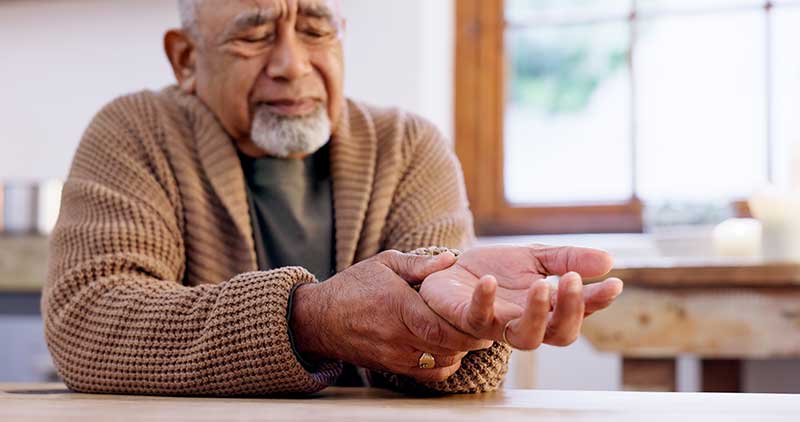Arthritis in Seniors Symptoms and Effects
 Arthritis and other joint-related disorders are a major concern among the elderly, limiting mobility, everyday activities, and overall quality of life. As we age, wear and tear on our joints can cause discomfort, stiffness, and various types of arthritis. This blog discusses the symptoms, common types of arthritis, and their influence on elders.
Arthritis and other joint-related disorders are a major concern among the elderly, limiting mobility, everyday activities, and overall quality of life. As we age, wear and tear on our joints can cause discomfort, stiffness, and various types of arthritis. This blog discusses the symptoms, common types of arthritis, and their influence on elders.
Recognize the symptoms
Recognizing the symptoms is the first step toward efficient joint pain management. Many seniors experience a variety of symptoms, which commonly include:
- Agony is commonly described as a persistent discomfort or agony during joint movement.
- Stiffness is a common symptom, particularly when getting up in the morning or following periods of inactivity.
- Swelling: Fluid in the joints can cause swelling, further restricting movement.
- Redness and Warmth: The affected joints may feel warmer and appear redder than the surrounding areas.
- Reduced Range of Motion: Difficulty moving the joint over its whole range of motion, which can impede with daily tasks.
Types of Arthritis affecting Seniors
Seniors can suffer from several types of arthritis, but the most frequent are:
- Osteoarthritis (OA), sometimes known as “wear and tear” arthritis, develops as the protective cartilage on the ends of your bones wears away over time. It primarily affects joints in the hands, knees, hips, and spine.
- Rheumatoid Arthritis (RA) is an autoimmune illness in which the immune system mistakenly assaults the joints, mainly the synovial membrane, causing significant pain and swelling.
Impact on Mobility and Quality of Life
Arthritis can significantly reduce a senior’s mobility and quality of life. It can make simple actions difficult, such as opening a jar or walking up stairs. Pain and stiffness can lead to decreased activity, worsening other health concerns and causing weight gain.
Furthermore, joint difficulties can have an impact on mental health, leading to emotions of frustration, despair, and anxiety. The loss of freedom that comes with severe arthritis can be especially challenging for seniors who are used to living active lifestyles.
Managing Symptoms
While there is no cure for arthritis, there are numerous strategies to manage the symptoms and enhance your quality of life.
- Regular, mild workouts such as walking, swimming, or yoga can help keep joints flexible and improve the muscles that surround them.
- Medications: Over-the-counter pain relievers and anti-inflammatory medications can help with pain and inflammation. In rare circumstances, a healthcare physician may prescribe harsher drugs.
- Physical Therapy: A physical therapist can teach exercises to maintain joints mobile and give supports like braces to relieve joint pressure.
- A nutritious diet high in antioxidants, omega-3 fatty acids, and vitamins can help reduce inflammation and improve joint health.
Understanding the symptoms and forms of arthritis that affect seniors is critical for effective treatment. Seniors with arthritis can keep their mobility and live full lives by making suitable lifestyle changes and therapies. Seniors with arthritis symptoms should speak with healthcare specialists to build a tailored approach that meets their specific needs and situations.



